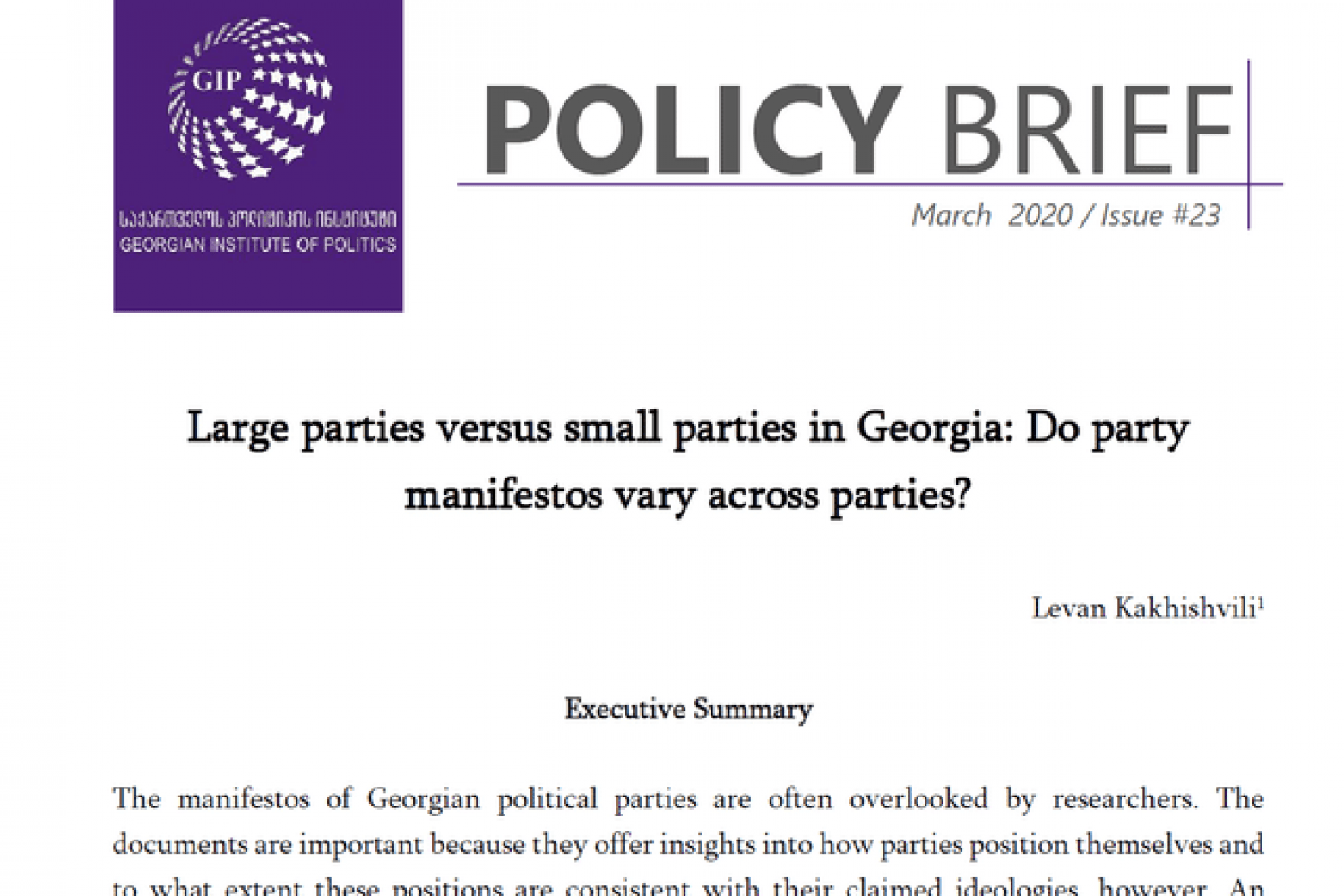2020-03-04 06:14:02
The manifestos of Georgian political parties are often overlooked by researchers. The documents are important because they offer insights into how parties position themselves and to what extent these positions are consistent with their claimed ideologies, however. An analysis of party manifestos and the results of the 2016 election can provide a baseline for the upcoming 2020 elections—as well as insightful recommendations for the competing political parties. This paper analyzes only those parties that have gained at least one mandate in the 2016 election and explores six dimensions of political competition: foreign policy orientation, democracy and human rights, distribution of power, economy, welfare state, and nationalism. The paper also provides recommendations for Georgian political parties, civil society organizations and donor organizations.




